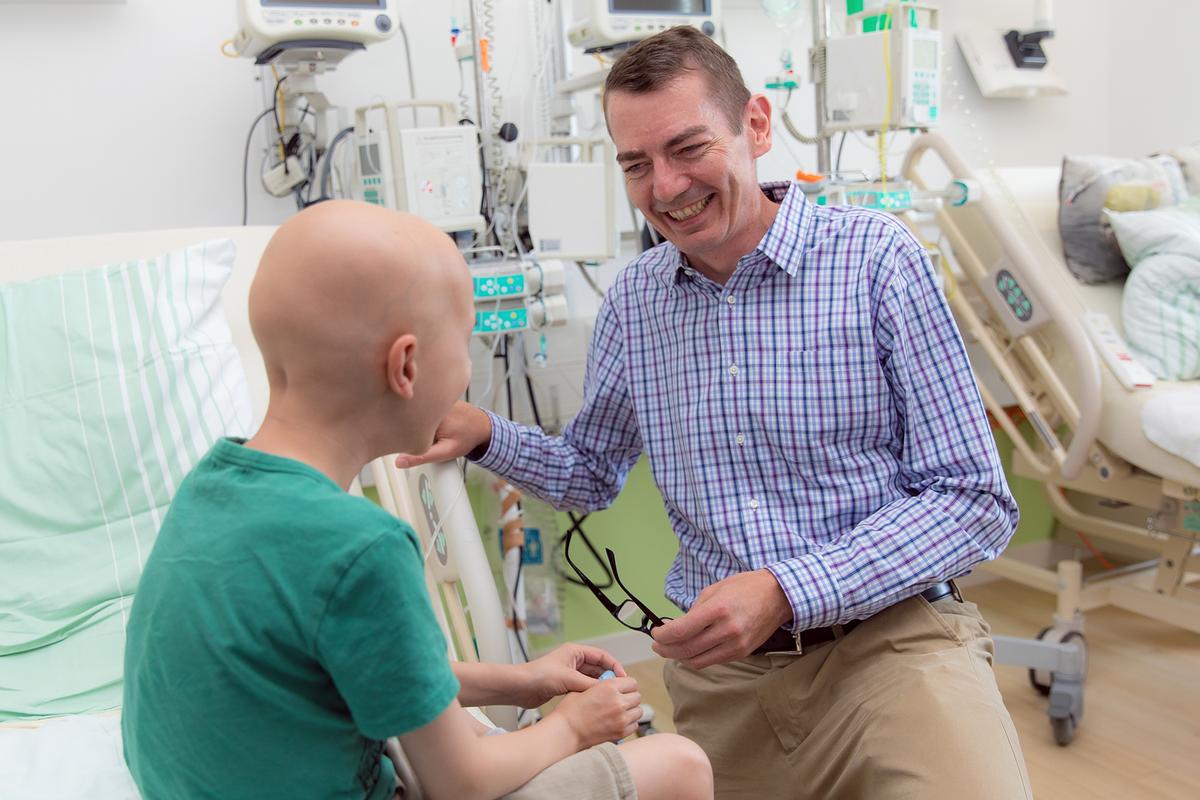Direct transfer of knowledge into clinical care: Patients come from all over Germany to the outpatient clinic for cancer predisposition syndromes at MHH Children's Hospital.

Children who survive cancer often suffer from chronic health problems. Copyright: Karin Kaiser/MHH
Cancer in children and adolescents is rare. Nevertheless, malignant diseases in this age group are still among the leading causes of death. Survivors of cancer in childhood or adolescence often suffer from chronic health problems with increased morbidity and mortality rates. The most important known risk factor for childhood cancer is genetic cancer predisposition. Certain disease-associated variants in a person's genes increase the risk of developing cancer. ‘Understanding the causes of cancer in children and adolescents is essential to improve the treatment of cancer in this age group, detect it even earlier or even prevent it in the future,’ explains Prof. Dr. Christian Kratz, Director of the Department of Paediatric Haematology and Oncology at MHH.
Genetic architecture of cancers is complex
Malignant diseases in children and adolescents have a hereditary component that is characterised by a complex architecture in which frequent gene variants at several gene loci and rare disease-associated gene variants may be involved. In addition, environmental factors such as viral infections may play a role. The first of what are now many known cancer predisposition genes (CPGs) to cause an increase in cancer risk in the case of hereditary disease-associated variants was identified 40 years ago.
These hereditary diseases are referred to as cancer predisposition syndromes (CPSs), such as Li-Fraumeni syndrome or Fanconi anaemia. Around ten per cent of all children and adolescents with cancer have a CPS. In addition, there are disease-causing gene variants that arise during embryonic development and can lead to cancer over the course of a lifetime. Those affected develop a mosaic disease in which both altered and healthy cells are present.
Outpatient clinic for cancer predisposition syndromes at MHH Children's Hospital
The outpatient clinic of the Department of Paediatric Haematology and Oncology provides advice and care for several hundred people affected by a CPS. Patients come to the MHH from all over Germany. The findings from research here have a direct influence on medical practice. Those affected are also offered participation in early detection programmes and various studies.
Professor Kratz has recently summarised the complex topic in a review article for the journal Nature Reviews Cancer. The journal publishes research results, reviews and commentaries on cancer research and is considered a leading source for the scientific community. Professor Kratz's team is supported by the German Childhood Cancer Foundation, the German Cancer Aid, the Federal Ministry of Education and Research and the Hannover Society for Children with Cancer.
Text: Jana Illmer-Krüger